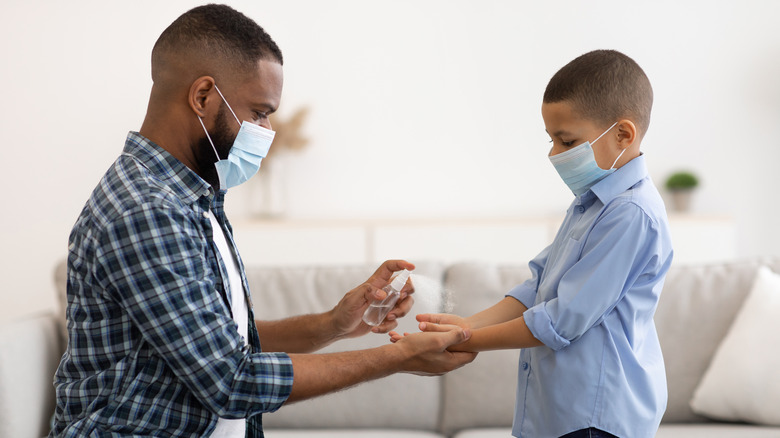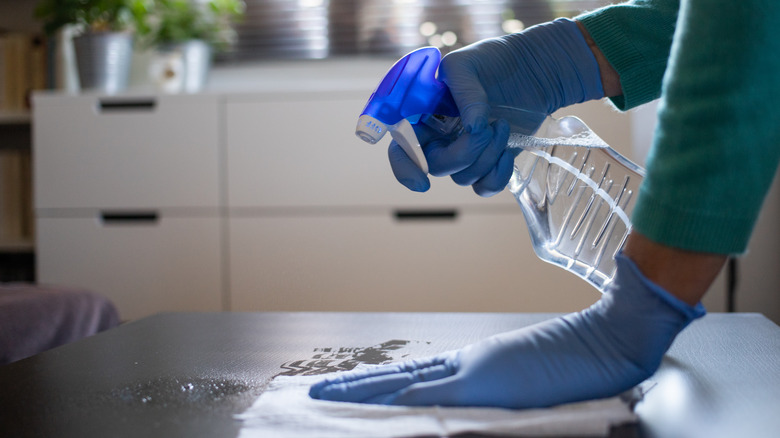How To Avoid COVID Spreading In Your Home When A Family Member Has It
While many of us have taken every measure to best protect ourselves and our loved ones from COVID-19, we haven't seen the end of the pandemic just yet. In the event that a family member becomes infected, here's what to do to help contain the spread of the virus within your home.
As per the U.S. Centers for Disease Control and Prevention (CDC), the current isolation guidelines for COVID-positive individuals is a period of five days or more. Ideally, this means relocating your family member to their own room, as well as a separate bathroom, if available — where risk of exposure to the person's bodily fluids can be higher, reports NBC News. However, this can be problematic if the infected family member is dependent on your care, such as a young child or elderly parent. If isolation is not a realistic option, there are steps you can take to mitigate the risk for viral spread to the rest of the household — primarily through air circulation.
Unlike the outdoors, COVID-19 particles can linger in the air of our homes (via NBC News). Therefore, you'll want to keep the air moving, preferably through an open window. Experts suggest keeping as many windows open in the home as possible, as well as periodically turning on exhaust fans in the bathroom or kitchen.
The importance of air filtration and routine cleaning
If the person can be isolated, opening windows in their room and running a portable fan can help direct contaminated airflow outside (via NBC News). In addition, you can secure a towel underneath the door of the isolated room to help protect against contaminated air making its way into the rest of the home. For family members who cannot be isolated, experts at the University of Iowa Stead Family Children's Hospital suggest that all household members, including the COVID-positive family member, engage in frequent hand-washing and masking when near each other. Be sure to limit contact with visitors or pets.
It's also recommended to avoid sharing any items frequently touched by the sick family member such as dishes or bedding (per University of Iowa Stead Family Children's Hospital). If changing the bedding is necessary, handle the laundry with disposable gloves and keep the items a safe distance away from your body. Remember to wash your hands thoroughly after.
Cleaning the house on a daily basis while a family member is ill is another way to protect against the spread of COVID-19, as suggested by the University of Iowa Stead Family Children's Hospital. To do so, you'll want to clean and disinfect high-traffic areas in the home, such as countertops and tables. Don't forget those smaller items either, such as doorknobs, light switches, faucet and toilet handles, or TV remotes.


